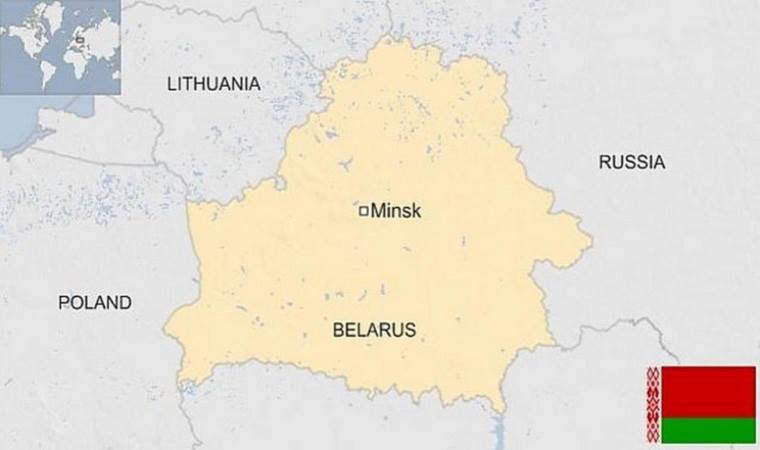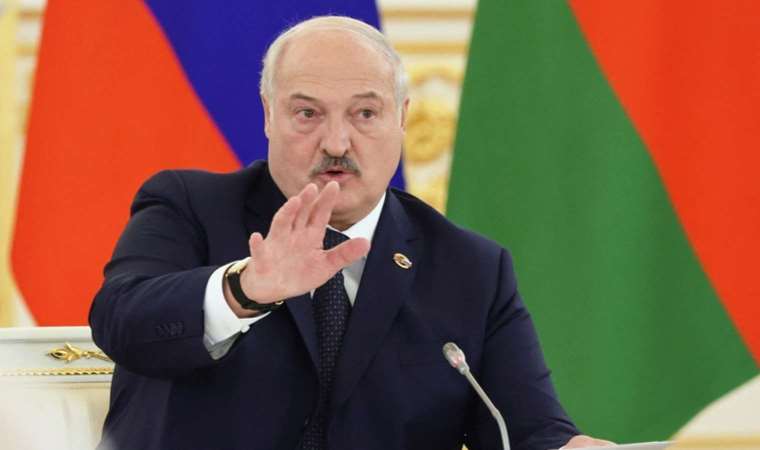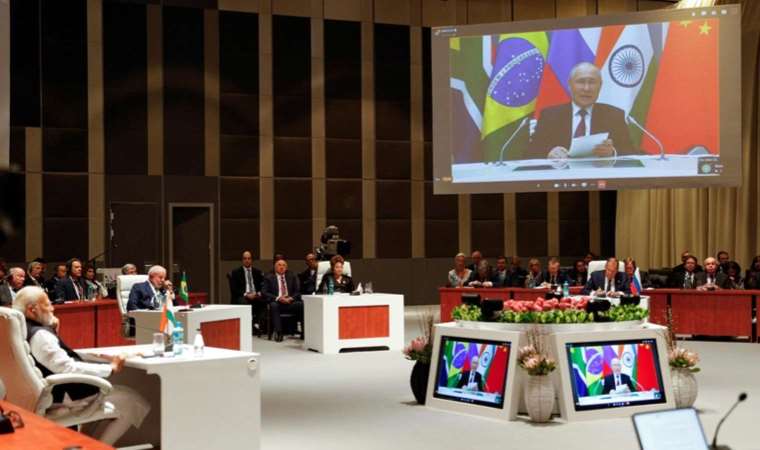There is a notion of preparation for World War 3
Belarusian President Alexander Lukashenko has approved the law suspending the Treaty on Conventional Armed Forces in Europe (CFE). “Belarus' suspension of the CFE is a necessary reaction step aimed at ensuring the country's national security in the face of the collapse of the existing conventional arms control regime in Europe and the ongoing military-political tensions in the region,” the Belarusian Foreign Ministry said in a statement. Commenting on the decision to Cumhuriyet, retired Turkish ambassador Uluç Özülker said, “It is a fact that the steps taken during the Cold War were abandoned in favor of creating a warm environment. It is certain that we are dealing with a technological development and world order that has long surpassed the AKKA.”

Belarusian President Lukashenko recently signed a law suspending the November 19, 1990 Treaty on Conventional Armed Forces in Europe (CFE). The treaty aimed to regulate the balance of military power in Europe. In a statement released by the Belarusian Foreign Ministry on the issue, it was claimed that Belarus, despite all its shortcomings, made every effort to preserve the only legally binding instrument on conventional arms control on the European continent, the CFE, but the decision of NATO member states to suspend the CECATF left Belarus with no other option.
'IF NATO RETURNS, WE WILL CONTINUE'
“Belarus' suspension of the CFE is a necessary reactionary step aimed at ensuring the country's national security in the face of the collapse of the existing conventional arms control regime in Europe and the ongoing military-political tensions in the region. The adoption of the law does not mean that Belarus will withdraw from the treaty. We will be ready to continue the implementation of the CSTO, provided that NATO member states that are parties to the treaty return to its application,” the statement said.
'THERE IS AN NOTION OF PREPARATION FOR WAR'
Commenting on Belarus's decision to suspend the CFE, Uluç Özülker told Cumhuriyet that Belarus is acting together with Russia and that there is no possibility that Belarus will be able to stay where Russia has taken a step back. Özülker said, “There are two aspects of this that need to be questioned going forward. Macron says 'I will send troops to Ukraine' and on the other side the US says 'you can use the missiles I give you against Russia'. In an environment where these things exist, when you say 'I am leaving the CFE', you should be skeptical. When we look at the course of events in the world, there is an notion as if preparations are being made for World War III. These are all part of this whole. CFE had already lost its meaning,” he said.
'ARM WRESTLING IS THE ROOT OF THE PROBLEM'
Özülker stated that CFE is no longer valuable and said, “They have also abandoned similar agreements, so it is a fact that the steps taken in the past during the cold war period have been abandoned in order to create a warm environment. It is certain that we are dealing with a technological development and world order that has already surpassed the CFE. The basis of the problem here is the arm wrestling between the US and Russia.”
WHAT IS CFE, TURKIYE HAS ALSO SUSPENDED IT
The Treaty on Conventional Armed Forces in Europe was a treaty signed on November 19, 1990 between NATO and the Soviet Union that mandated certain military reductions. Negotiated and finalized in the final years of the Cold War, it imposed comprehensive limits on major categories of conventional military equipment in Europe and required the destruction of surplus weapons. The treaty was signed by 22 states in Paris on November 19, 1990. States were divided into two groups: 16 then NATO members: the United States, Germany, Belgium, the United Kingdom, Denmark, France,the Netherlands, Spain, Italy, Iceland, Canada, Luxembourg, Norway, Portugal, Turkey and Greece, and 6 then Warsaw Pact members: Bulgaria, Czechoslovakia, Hungary, Poland, Romania, and the Soviet Union. The United States and Russia suspended the treaty in 2023. Turkey suspended the treaty on April 4, 2024.



